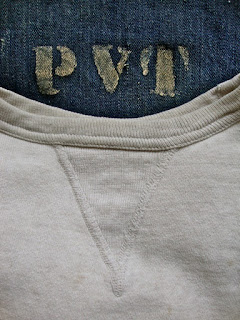it's finally becoming cold here in SF, so i'm pulling out the winter gear .Once more it's "plaid time".Today's post ,will feature one of my favorite from the vault: an early buffalo plaid 40's Hirsch/Weis hunting coat .This beauty has fully caped shoulders, a sports collar that once buttoned covers half of the face.But ,what i like the most, is its quite uncommon brown and black color.
The Portland company that became White Stag,originated as a business that specialized in sails for ships: The Willamette Tent and Awning Company.
The company was established in 1883 by Henry Wemme he sold it to brothers Max S. and Leopold B. Hirsch in 1907. Harry Weis ,brother of Wemme's former secretary was asked by the brothers to stay in the company. Appreciative of Weis's knowledge about canvas products, the Hirsch entrepreneurs asked him to become a partner, and soon the company was known as the Hirsch-Weis Manufacturing Company. As commercial sailing ships became obsolete, the partners expanded to make durable clothing and supplies for outdoor workers such as loggers, mill hands, and stockmen.
In 1929, Harold S. Hirsch, son of the founder and a member of the Dartmouth ski team, was granted permission from his father to develop a new line of clothing designed exclusively for skiers.In a corner of the Hirsch-Weis factory, he began work on a ski suit, which he marketed in 1931 as "White Stag," He adopted the name White-Stag after an inverted English translation of the original company name, Weiss meaning white in German and Hirsch meaning a male deer.an English translation of the German words, "Hirsch" and "Weis."
Skiing in Oregon was on the rise in the 1930s, and the White Stag brand quickly gained a reputation, especially in western states. After World War II, the sport skyrocketed in popularity and, with it, White Stag ski clothing. As the sportswear division of Hirsch-Weis Manufacturing Company overcame the popularity of the company itself, officials changed its name to White Stag in 1956. By 1966, White Stag was a public company, and owners of the controlling stock - primarily the Hirsch family and other relatives - merged it with a conglomerate called Warner Brothers, a nationwide apparel and textile firm that later changed its name to Warnaco who sold the trademark to Wal-Mart in 2003.








































